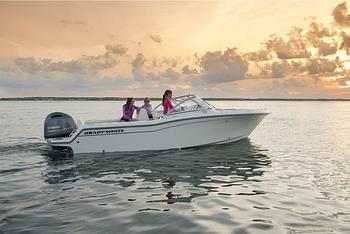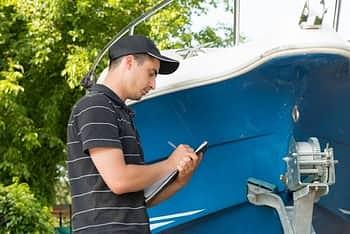As a boat owner, you’ll soon get quite familiar with the idea of opening your wallet. While buying a boat is the largest payment you’ll make, you have to be realistic about how much owning, running and maintaining a boat will cost you each year. Take a look at our guide to boat ownership costs to get an idea of the sorts of things you’ll need to pay for, everything from boat insurance to berthing fees and repairs and maintenance.
However, owning a boat doesn’t have to cost the earth or be prohibitive, and there are many ways you can look to lower those costs and make them fit comfortably within your budget. With a few tweaks and clever strategies, you can own and enjoy your very own boat without feeling the pinch from those monthly expenses.
Think Hard about where you Moor your Boat
We’ll begin with one of your biggest outgoings, and that’s mooring or berthing fees. The good news is that with a little bit of research and a bit of compromise you can save thousands a year on where you store your boat.
-
Use Moorings instead of Slips. If you don’t need your boat to be plugged in all the time, and you’re willing to take that extra time getting to and from your boat, you can save a huge amount of money by using a mooring rather than a marina slip. In fact, you could be saving anywhere from 50% to 90% of the cost of a seasonal slip. Of course there are compromises to make, with no electric hook up to charge fridges or batteries, and moving of equipment and people back and forth a little more challenging, but with what you save in slip fees you could always hire a transient slip as and when you need it.
-
Trailer your Boat. If your boat can be put on a trailer (and you can a car strong enough to tow it) storing your boat away from the water will always be a cheaper option. You might be lucky enough to have a driveway or grounds of your own to keep it on, but if not then ask around for secure yards – those which store caravans for example – and you might get an excellent deal. RIBS, bow riders, sports boat, speed boats and Jon boats are all great examples of nifty little boats that can easily be towed.
-
Dry Stack your Boat. Many marinas are now offering this cost-cutting and secure way of storing your boat. Best suited to motorboats and Rigid Inflatable Boats (RIBs) between 4m and 13m long, your boat is stored indoors on huge racks. You simply call ahead when you want to use your boat, and it is lifted into a temporary slip ready and waiting for you.
-
Store your Boat in a Cheaper Location. Like with everything it’s all about location, location, location. If you want a prime location to moor your boat in – close to open water, scenic coastal regions or to a city for example – you’ll pay a premium for the privilege. However, look around the area, and you’ll find less popular marinas have considerably lower rates. It might mean you have to drive longer to get there, or you have to sail a bit longer to get where you want to go when you’re on your boat, but the savings could be huge.
Marine Financing
A marine mortgage is becoming an ever more popular way to finance the purchase of a boat, and can be a very good way to budget your monthly outgoings. In the same way as house mortgages or loans on cars, marine mortgages allow you to pay a deposit on a new or used boat and pay the balance off over a set number of years. The risk with this is to buy a boat which is too big and therefore more costly to run, and find yourself pinched financially each month. But buy sensibly and within your budget and spreading the purchase and running costs out can be beneficial in helping you formulate a monthly expenses list.
Boat Shares
Imagine owning only half, or a part of, a boat. You get to use the boat often, but the costs are divided amongst more people making them a fraction of owning it outright. This form of boat ownership is fast gaining popularity, and there are various ways to go about it. One option is a boat share amongst friends, and sees you and people you know sharing the initial purchase cost and subsequent maintenance and running costs. It could be an informal agreement on who uses the boat when, or you could put something in writing to make it more legal.
Another option is a private syndicate which works in much the same way as a hotel timeshare. A professionally managed yacht sharing partnership is formed, allowing you to pay a monthly fee or own a fraction of the boat. You don’t need to be involved in the maintenance or upkeep of the boat and will get a set amount of time to use the boat each year. There are more and more shipbuilders now offering this on new boats.
Build your Maintenance Skills
Saving the hefty labour costs on some simpler maintenance jobs by doing them yourself is both a cost-effective and satisfying thing to do. There are many things you can learn to do by yourself including engine oil changes, winterizing the engine and household systems, polishing stainless steel and brass, and small repair jobs. A good repair book is invaluable, and you’ll need to dedicate time and elbow grease. It’s also worthwhile (and interesting) to learn about maintenance and repairs from classes or workshops offered by marine associations, sailing clubs and boat shows.
Buy Second Hand or Non-Marine Grade Labels
There is a bit of a joke within the boating world that using the term ‘marine’ on a product can drastically increase its price tag. While there is some truth to this, there are many products on the market which are carefully designed to be used within a marine environment, and we don’t recommend using less job-worthy alternatives. However, there are instances when a non-marine grade retail part or product can be just as good – or even identical – and cost a fraction of the price. Items such as cleaning supplies, engine oil, anti-freeze and so on can all be bought for less in high street shops than in chandleries. Do be sure to check that you are buying a like for like product though, and don’t buy alternatives where their water-repelling properties are crucial, otherwise it’s false economy and won’t be up to the job.
Another good way to save money is to look for second hand alternatives. Items such as winches and handles, windlasses, anchors, heaters and many other items can be bought for a fraction of the price than if they were new. This is especially true of older boats, where new parts may not be available anymore, and replacing whole systems to accommodate new parts expensive.
Earn Money from Your Boat
People who don’t have boats will pay for the use of yours, and it’s a fun and savvy way to off-set some costs of boat ownership. There are many ways to earn money from your boat which you could consider depending on where you live and what type of boat you have. You could offer sightseeing, wildlife or photography tours, offer informal sailing lessons or fishing trips, or even consider using your boat as a water taxi.
Chartering your boat for others to use is the most common way of earning an income from your boat. The charter market has long been a thriving industry, with charterers willing to pay good money for the private use of a boat, whether it’s a luxury yacht, a weekend sailboat or a fishing day boat. You might want to offer day charters to small groups that you run yourself (don’t forget to ensure you have the right insurance and certificates), or you could offer longer bareboat or crewed charters. Check out our guide to chartering your boat for more inspiration.
Live on Your Boat
Ok, so we’re just throwing this one out there, but imagine selling or renting out your house and living life on the water. While it isn’t for everyone, and there are pros and cons to weigh up, it can be a wonderful adventure that brings many rewards. You might want to spend a few years on your boat while you save for a deposit on a house, or you might want a complete change of lifestyle as you enter retirement. Whether you opt to sail around the world, or prefer a more static house boat or canal boat there are so many options to choose from.
You May Also Like ...
1. Deciding if living on a boat is right for you
2. Choosing on the right boat to live on
3. The Cost of Boating: Creating a Budget
Related Articles and Guides
7th Jun 2024
Best Boat Brands for Beginners: Power, Sail, Pontoon & Fish
25th May 2024
Boat Inspection Checklist: How to Inspect a Boat Before Buying
4th May 2024
Do You Need a License to Sail a Boat in the US?
28th Nov 2023






